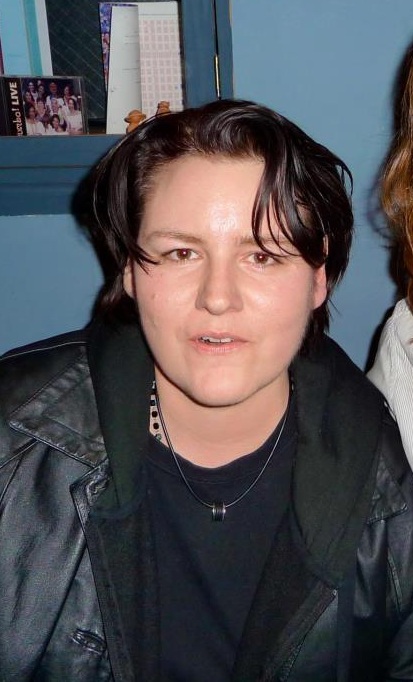
Bec Stafford
Bec Stafford has a Masters of Philosophy from the University of Queensland. She blogs and interviews for MDPWeb and the Spotlight Report
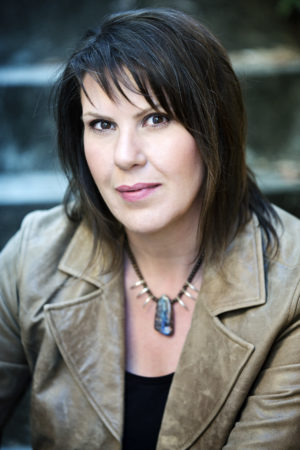 Bec: A number of important themes run through Refuge: (friendship, loyalty, and self-discovery to name a few). What is the most important thing you’d like your readers to come away with, after having read this book?
Bec: A number of important themes run through Refuge: (friendship, loyalty, and self-discovery to name a few). What is the most important thing you’d like your readers to come away with, after having read this book?
A V Mather: If Refuge could be considered a cautionary tale, in the tradition of the original fairy tales, then the Doctor is the witch in the gingerbread house. I wrote the character as an example of how easy it is to be taken in and controlled by someone, when you are lost and desperate. I guess one message is: if a much older stranger seems to be completely captivated by you, if they agree with you and understand you better than anyone else, be very suspicious. They may be leading you somewhere dangerous and some people never come back from those experiences. Even if they are not physically harmed, they can remain trapped there emotionally, just like the children in Refuge.
The story is also about finding your own strength and your own character, regardless of what other people are doing or saying. That is a very difficult thing to do, to back yourself, particularly when you are young and feel you have no real power. Nell discovers that she does have worth, beyond the needs and desires of the people around her, and this gives her the courage to forge her own path.
Bec: Refuge contains some incredible world-building. Can you tell us a bit about your process? Do you draw maps for yourself, for instance?
A V Mather: I do a bit, but they’re mostly just scrawls to orient things in my head.
The world-building is at the centre of the process for me, and I tend to be very indulgent about it. I am that person who notices everything and I have a tremendous curiosity about my environment. I had to cut reams from my first drafts of Refuge because there was far too much description of the world Nell was seeing.
Most of my process stems from an original point of view and then grows outwards. For example, I see it from Nell’s perspective first, experiencing it as she would, and then pull back to the bigger picture. That first impression is very important to me and I find that if I do it the other way around, I tend to lose that original sense of wonder or intimacy. I begin with my imagining of the place — the look, feel, smell — and then follow that up with research. This is mainly if the place or object is based in historical reality, if it’s drawn from a subject that I know little about, or just to feed the imagination with examples.
Bec: The characters in Refuge are so vivid and distinctive that they virtually leap off the page. Can you tell us a bit about the process you went through creating your central characters and their relationships?
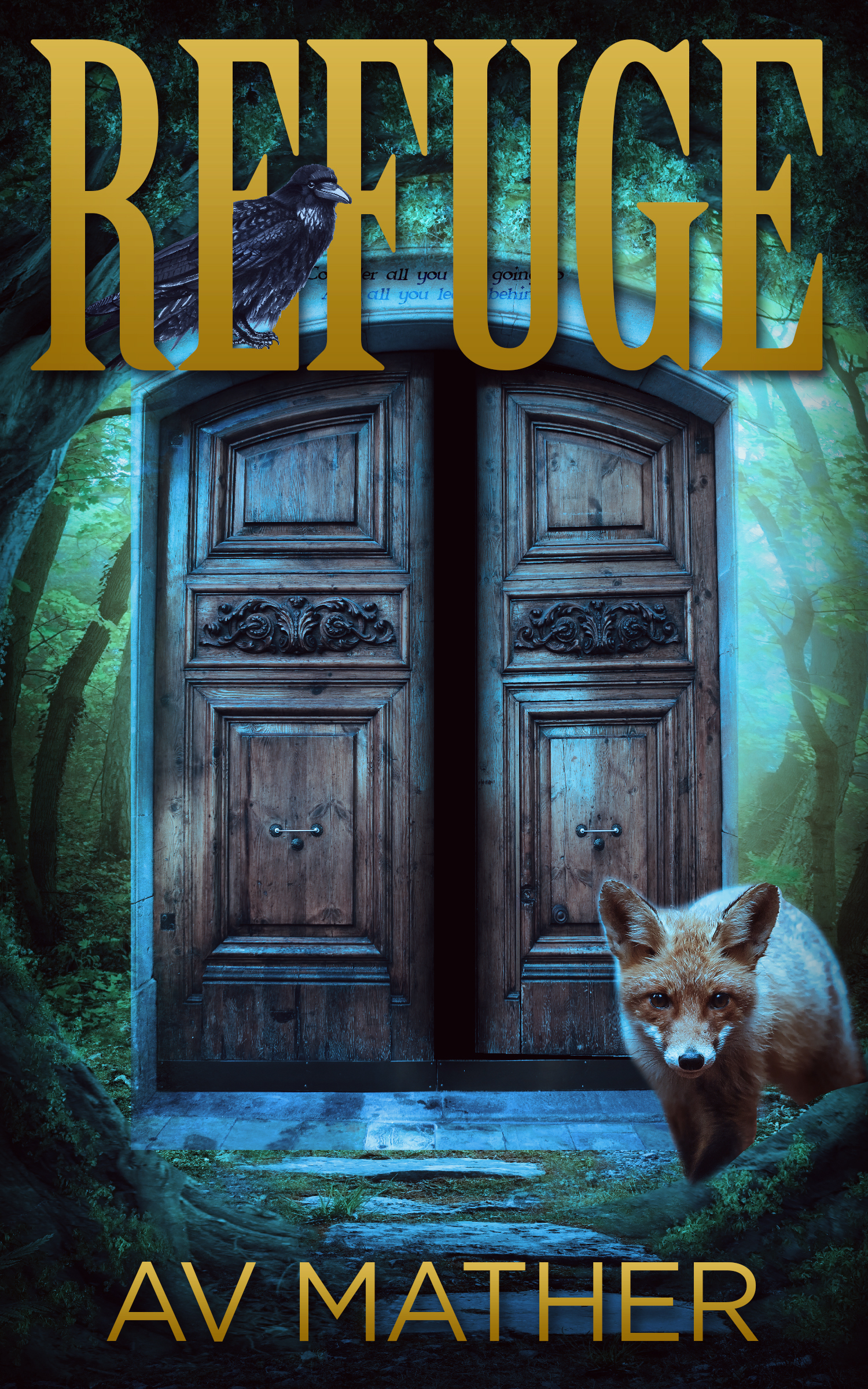 A V Mather: I began writing the story around the characters of Doctor Nathanial Fray and Gideon. Although it might not seem like it to the reader, the story very much grew from the Doctor, rather than from Nell, so I devoted a lot of my time to him in the beginning. I knew that he had to be a psychiatrist and not from the modern era, so I did a great deal of research on the development of psychiatry through the ages. I wanted him to be experimental and tragic and I’ve always been horrified and fascinated by Bedlam, so seemed the ideal place to start.
A V Mather: I began writing the story around the characters of Doctor Nathanial Fray and Gideon. Although it might not seem like it to the reader, the story very much grew from the Doctor, rather than from Nell, so I devoted a lot of my time to him in the beginning. I knew that he had to be a psychiatrist and not from the modern era, so I did a great deal of research on the development of psychiatry through the ages. I wanted him to be experimental and tragic and I’ve always been horrified and fascinated by Bedlam, so seemed the ideal place to start.
It’s very important for characters to have their own, authentic voice. This was a challenge in Refuge because so many of them belong to different eras, as well as nationalities. There was a constant danger of slipping into the wrong mode of speech. Keeping them all distinct from each other while having the same conversation proved difficult, particularly when I was racing to keep up with what they were saying in my head. I found it necessary to keep a vocabulary profile for each character, that I could refer to when writing their dialogue.
All the Australian characters have grown from my own experience, but all of the others were researched. The Doctor is from early-mid 1700’s in London, Gideon is an English ‘wharf rat’ from later in the century, Fox is one of the ‘Bright Young Things’ from the early 1920’s, Deuce is from the Deep South in the ‘50’s and Janus is from Queensland in the mid ‘70’s. Mixed in with that are characters like Mary Wentworth, who is from the Doctor’s time but a different social class, and the twins, who originate from Paris in the early 30’s.
The real trick was to make all of that authentic but not alienating. I constantly had to keep my audience in mind when writing the interactions between characters, to make sure that they would be able to follow it.
As for creating the relationships, I think all of them are based on real-life scenarios, if not as true accounts, then at least symbolically. Gideon’s need to confront the father who bullied him, and his need to bully others in turn, is probably the most obvious example of an eternal allegory or trope. You can see examples of it every day in the news, the workplace, or the school playground.
I strove to portray a variety of relationships and show that they don’t have to be perfect, or even particularly wonderful, to be valuable. For example, Nell’s relationships with her grandfather, her aunt and Grace are pretty uncomfortable at times, but they’re worth more than a thousand fake friendships with the likes of Tabby Crane.
Bec: Which of your characters Burns Brightest in your mind and why?
A V Mather: My first reaction is to say the Doctor, although of course I like them all. The Doctor is really the character that the whole story revolves around and without him there would be no Refuge. The first thing I wrote of Refuge was one of his interactions with Gideon and it grew from there, so they are both close to my heart. Perhaps it’s strange, beginning a story by writing the villains but they are so interesting.
The Doctor is brilliant, charming, perceptive and ruthless. A man ahead of his time, crushed by tragedy, who has been given the opportunity to rewrite history — a dangerous combination. He is a master of manipulation and operating on a completely different playing field to everyone else. He represents what happens when intelligence and sensitivity become warped by ambition, guilt and obsession. I very much enjoyed developing his character. One of my early readers said that he reminded them of a spider, sitting in the centre of its web and I like that analogy.
And just quickly, I also love Fox. I would love to be that confident and unflappable.
AUTHOR BIO:
I was born an only child in a remote gold mining town in Canada. My family moved to Australia when I was very young and I grew up on stories of eccentric characters in wild places; of exciting rescues, bears that destroyed helicopters and the silence of wolves.
My life since has continued to take a few eccentric turns of its own, from studying Visual Arts in Northern NSW, to set painting on a TV series, to teaching art at a boy’s boarding school in Central QLD. Through it all, my love of stories — telling, watching, reading and hearing them — grew stronger and eventually I answered the compulsion to write.
I enjoy reading widely across genres and am also interested in art, nature, satire, history, photography, popular culture, psychology, road trips and good stories – real and imagined.
I live in Brisbane, Australia with my husband and a constant sense of foreboding.
Refuge is available now on Amazon for Kindle:
ISBN B01MZDXBQ3



















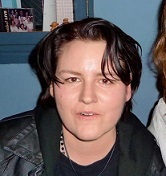
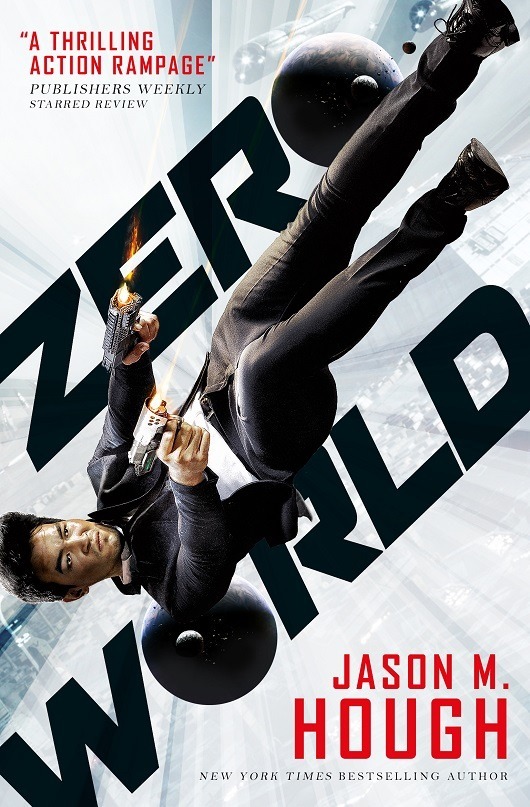
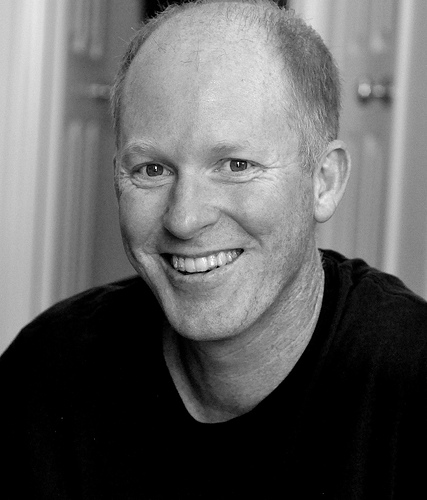 What are some of your favourite zombie films, and which best reflect your ideas about surviving a zombie apocalypse? Do you often find yourself shouting, ‘Oh, you’d neverdo that!’ in frustration at the screen when the protagonists are hatching escape plans?
What are some of your favourite zombie films, and which best reflect your ideas about surviving a zombie apocalypse? Do you often find yourself shouting, ‘Oh, you’d neverdo that!’ in frustration at the screen when the protagonists are hatching escape plans?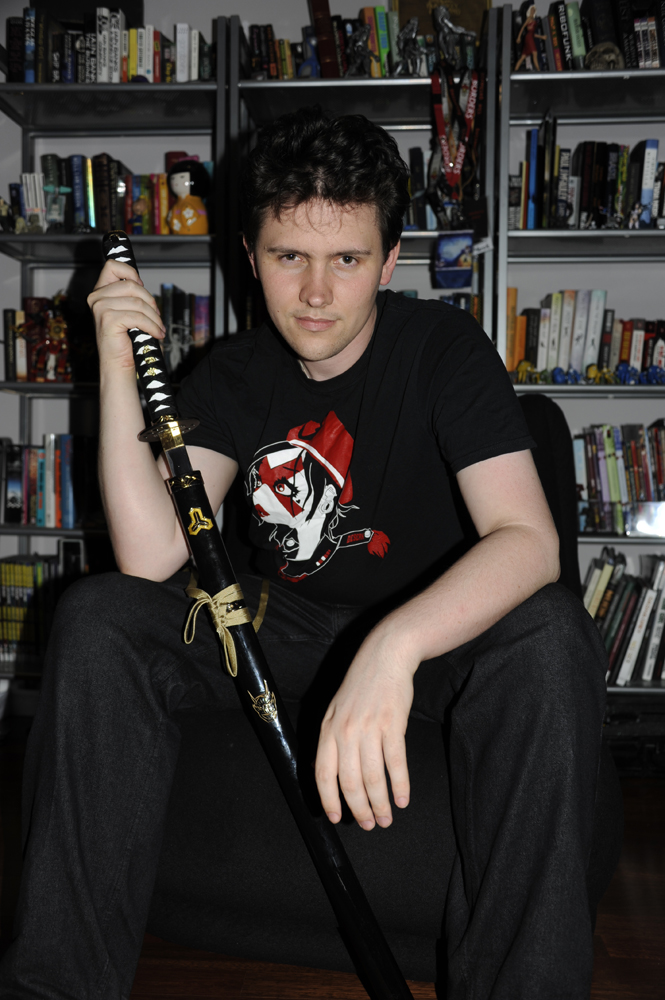
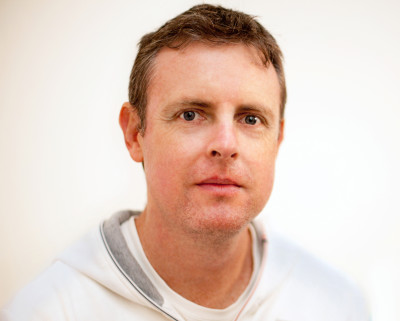 Hi Mitchell. It’s a pleasure getting the chance to interview you in time for the official release of your novel A Crucible of Souls.
Hi Mitchell. It’s a pleasure getting the chance to interview you in time for the official release of your novel A Crucible of Souls.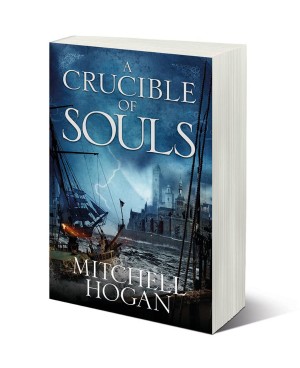 A Crucible of Souls won the prestigious Aurealis Award in 2013 in the Best Fantasy Novel category, and is now being released by one of the largest publishing houses in the world. How did first Crucible come into this world and did you ever think it would achieve such success?
A Crucible of Souls won the prestigious Aurealis Award in 2013 in the Best Fantasy Novel category, and is now being released by one of the largest publishing houses in the world. How did first Crucible come into this world and did you ever think it would achieve such success?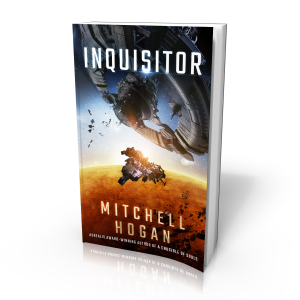 Are there any recurring themes or character types in your work as a whole?
Are there any recurring themes or character types in your work as a whole?














